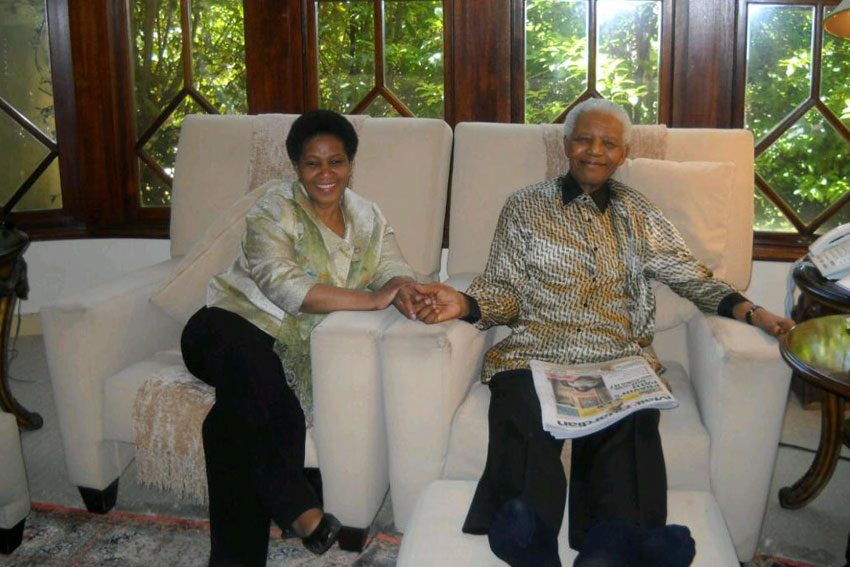
Nelson Mandela embodied many of the ideals of the United Nations, and it is no wonder that many of the world body’s staff members are inspired in their work and lives by the former South African President and champion of peace, beginning with the Secretary-General himself.
UN chief Ban Ki-moon recalled: “I was privileged to meet Nelson Mandela in 2009. When I thanked him for his life’s work, he insisted the credit belonged to others. I was very moved by his selflessness and deep sense of shared purpose.”
Some UN staff members had long-running relationships with Mandela, or “Madiba, as he was affectionately known. Phumzile Mlambo-Ngcuka, executive director of UN Women, said she felt the pain of Madiba’s passing as she shared with the UN News Centre a conversation the two had when they began working together on the executive committee of the African National Congress (ANC).
She said she told Mandela, “I have a lot to learn.” His response was: “I also wasn’t trained to be a prisoner, but remember, I’d been a prisoner for a long time.” Recalling his “amazing way to make you feel strong,” Mlambo-Ngcuka said that she knew then, “I just had to rise to the occasion.”
“I feel I owe … many of my blessings to his leadership,” Mlambo-Ngcuka said, adding she would always be grateful that “Madiba took a chance on me.”
“People were actually wishing he would live forever, myself included,” she said.
Mandela’s former chief legal advisor, Nicholas Haysom, now the Deputy Special Representative of the Secretary-General at the UN Assistance Mission in Afghanistan (UNAMA). “I was struck by the grace, charm and gratitude he displayed to even the most humble workers around him,” Haysom said. “Whether a commoner or a queen,” he treated everyone equally.
Haysom, observed that people, particularly in conflict countries where he has worked, sometime complained bitterly that their own nation “lacks a Madiba — a person who is big enough to unite their country and put it on course.”
Commenting on Mandela’s death, Haysom, a South African, said he felt “both relief, because he had been ill for so long, but still unmistakeably a sense of loss,” adding that he was “always conscious of both my country’s debt and the debt of everyone everywhere towards this man both for his dedicated commitment to his principals, as well as his capacity to bring people together.”
UN Radio Producer Derrick Mbatha came from Africa in 1979 to work as part of a UN Radio team producing programmes that covered the Organization’s activities against apartheid.
“I felt a strong connection to Mr. Mandela through the struggle we shared to rid South Africa of apartheid,” he said.
Mbatha recalled how moving it was to hear Madiba speak at the General Assembly. “Mandela was everybody’s hero,” he said.





